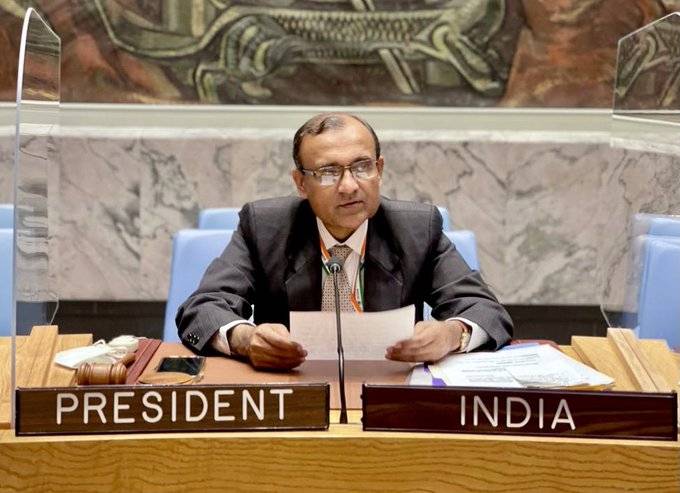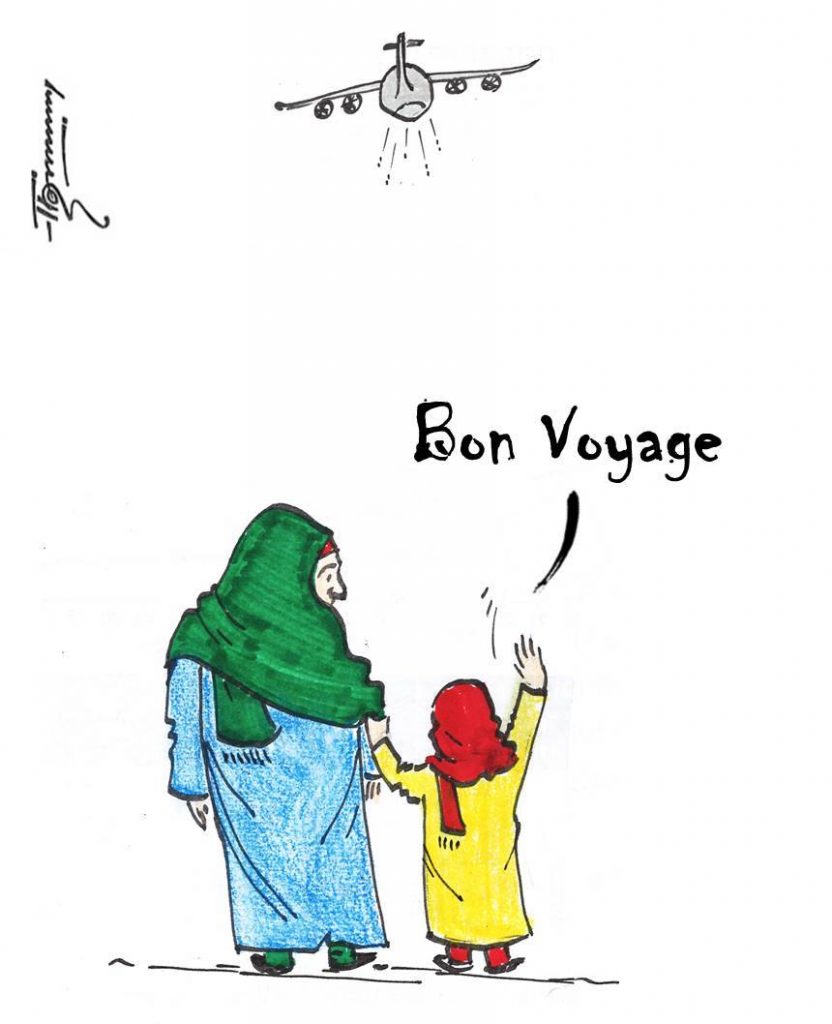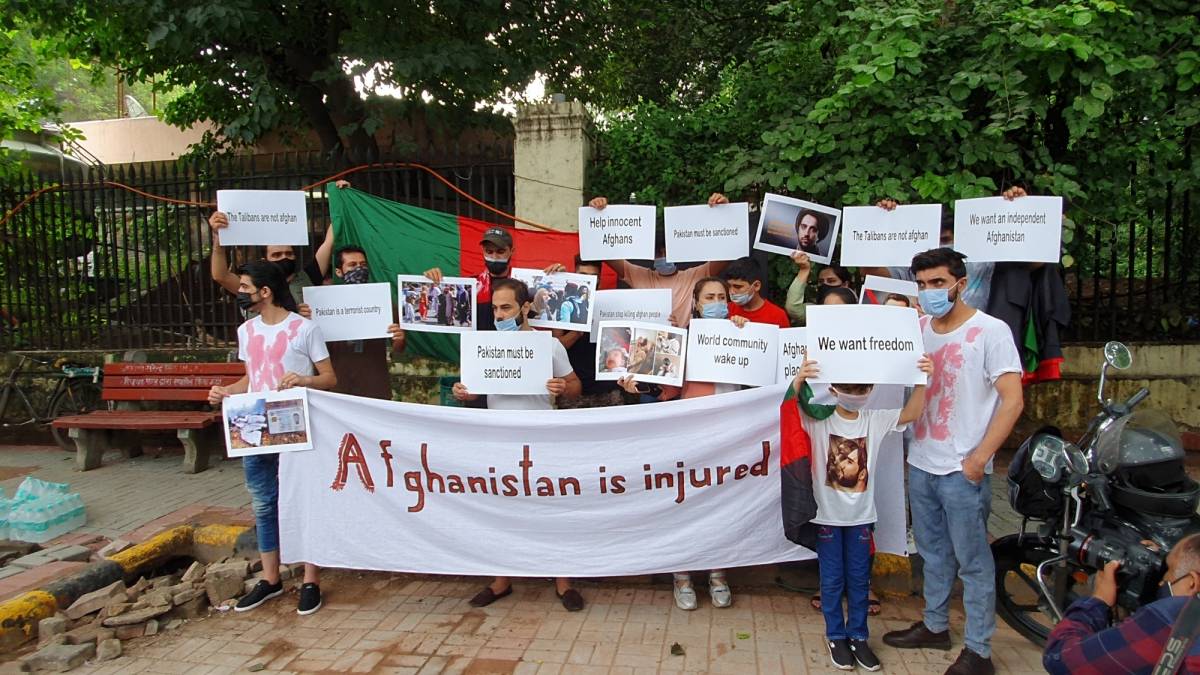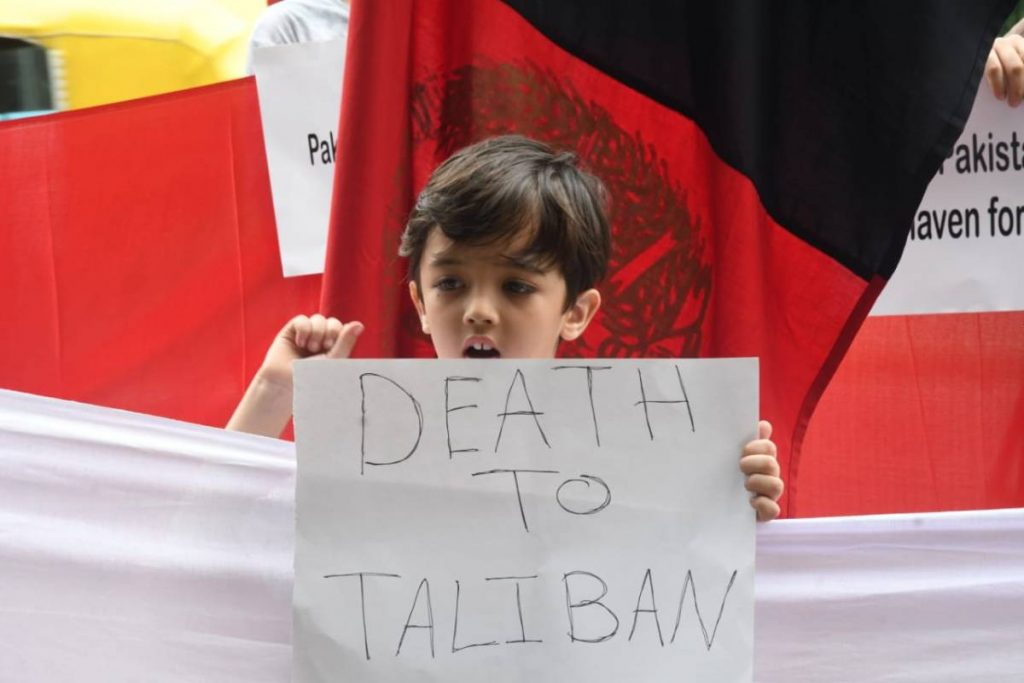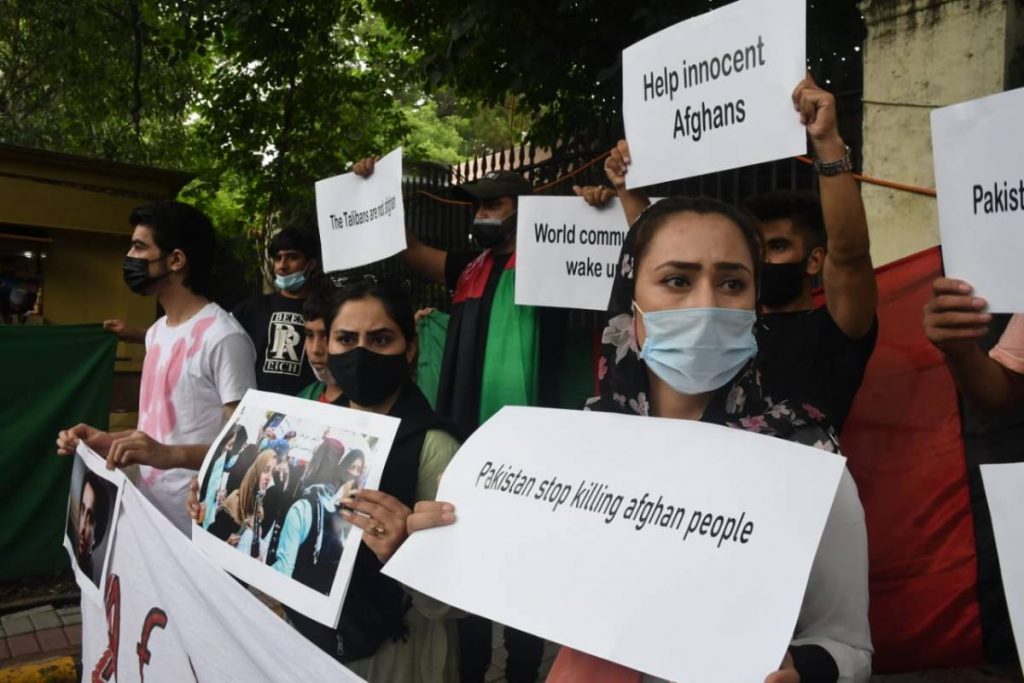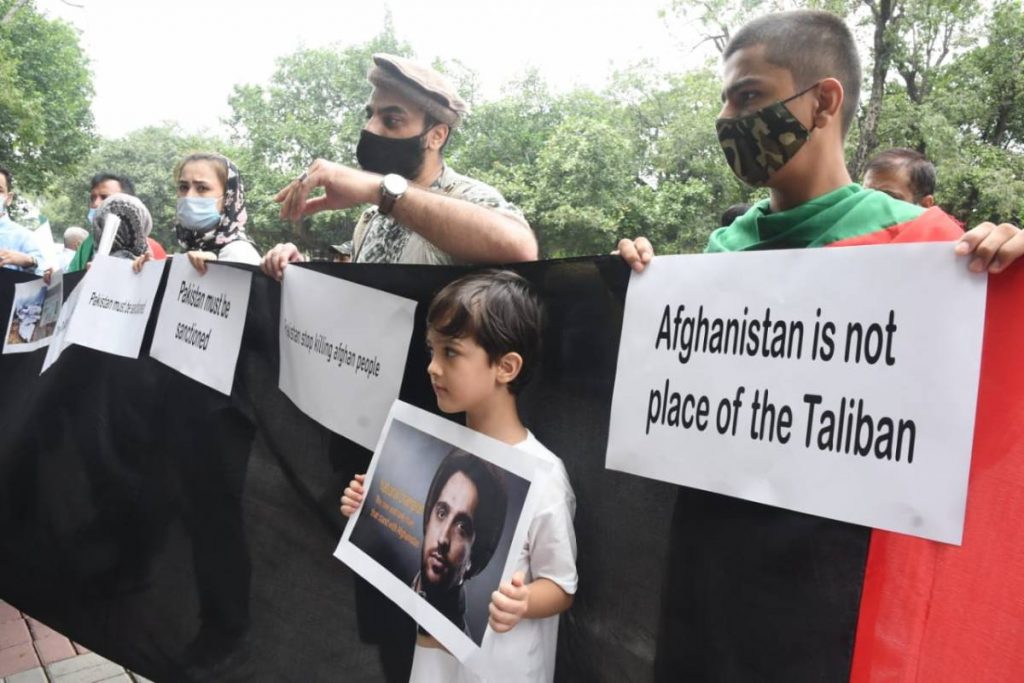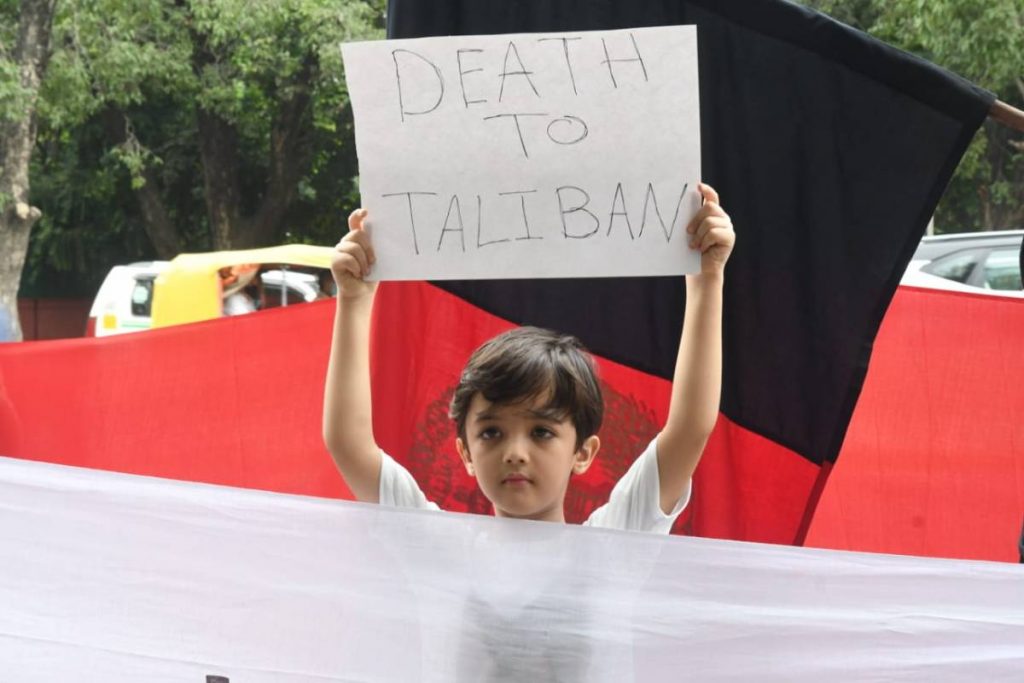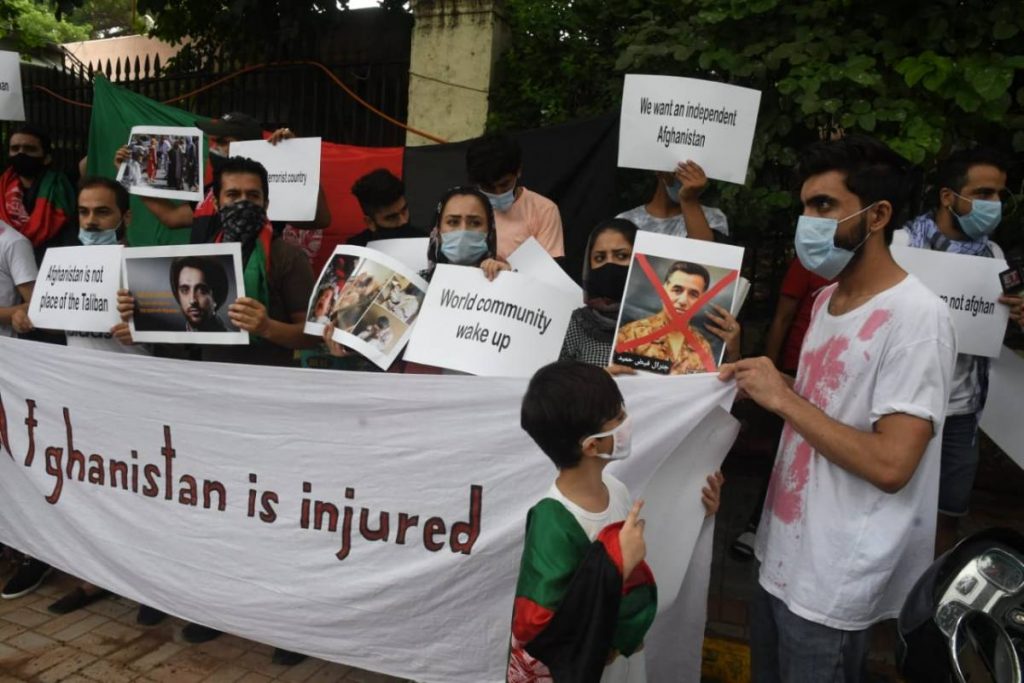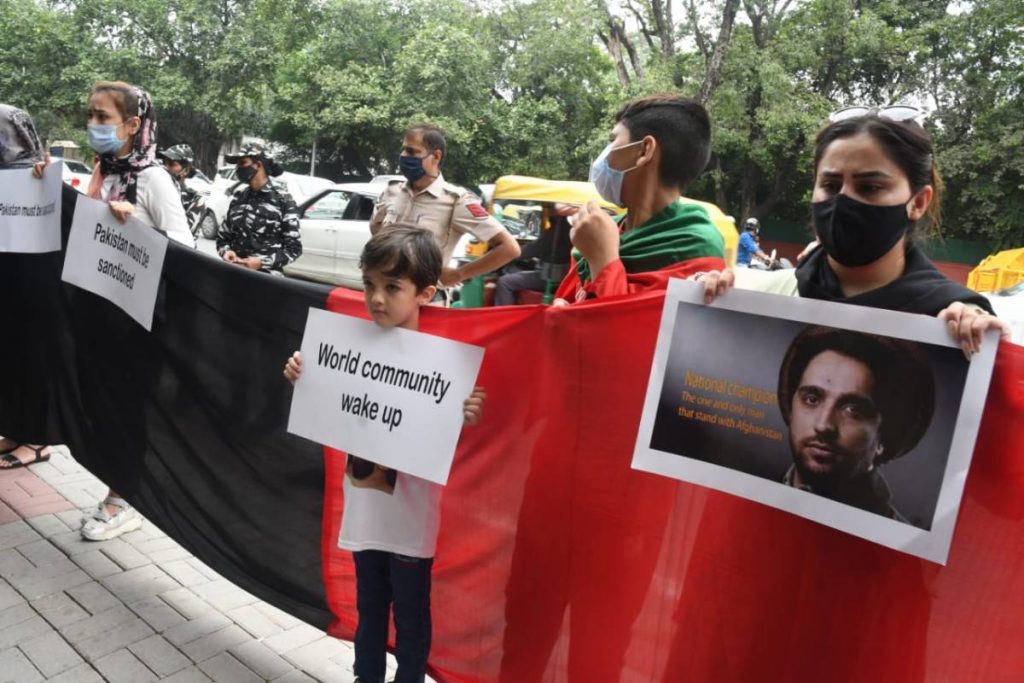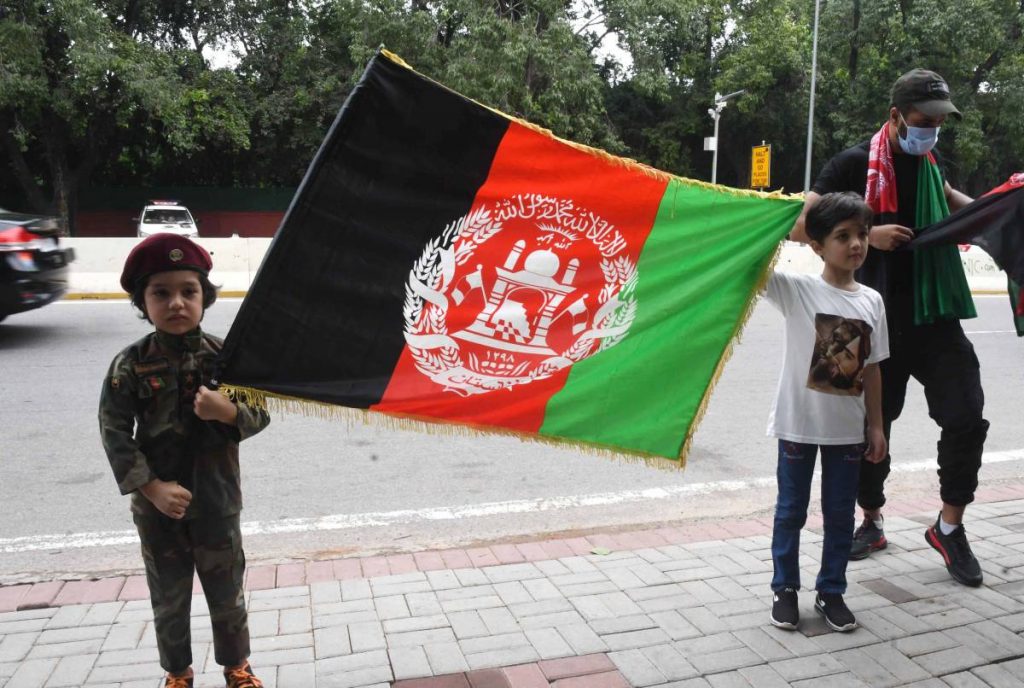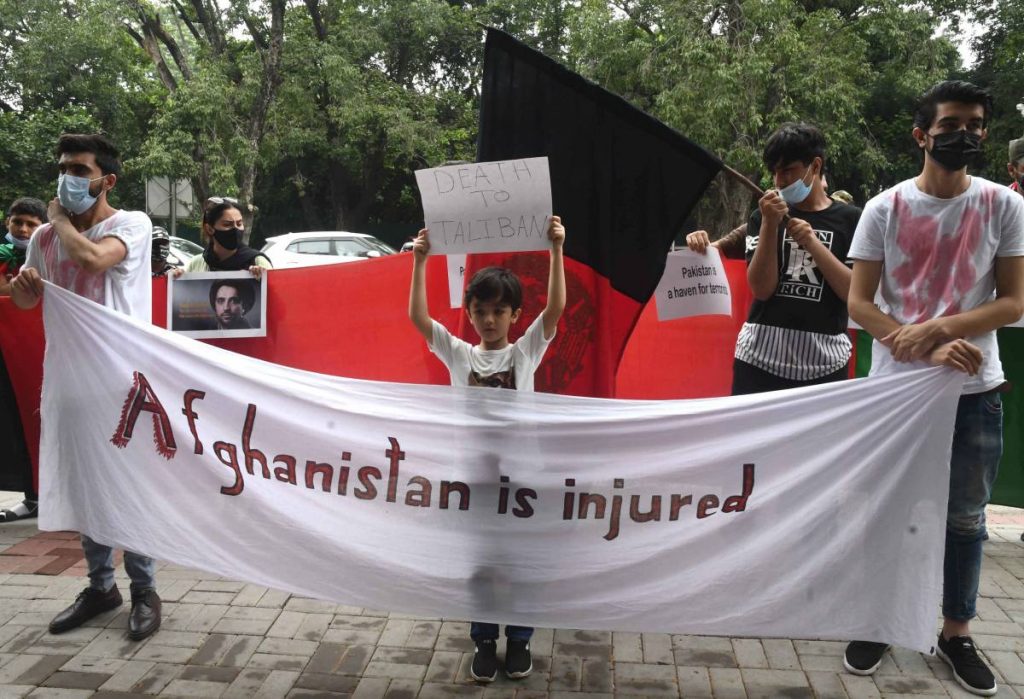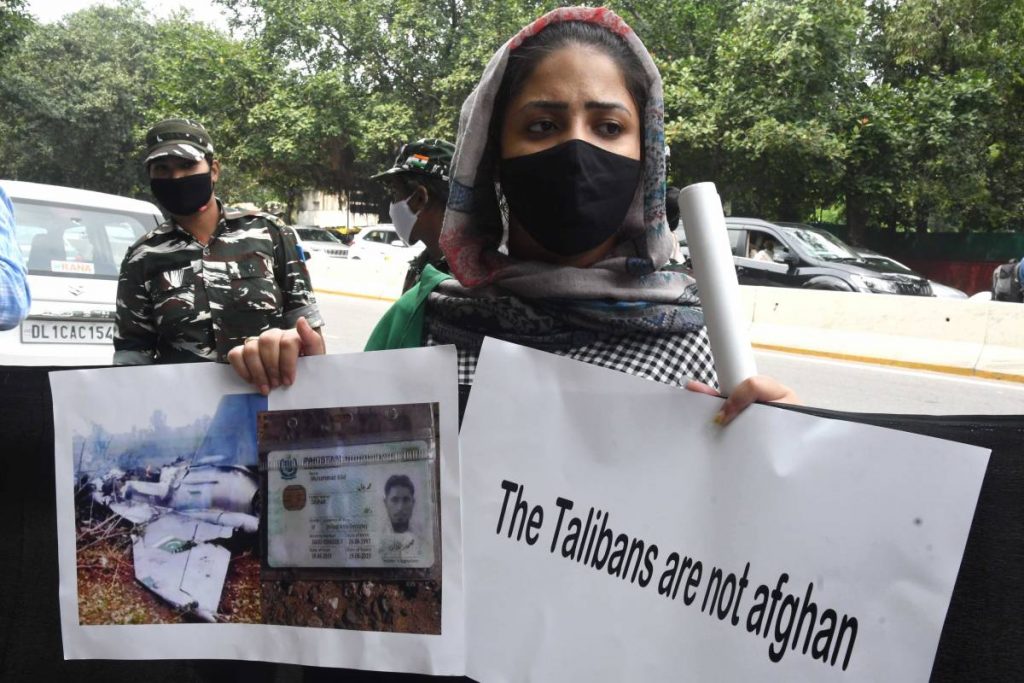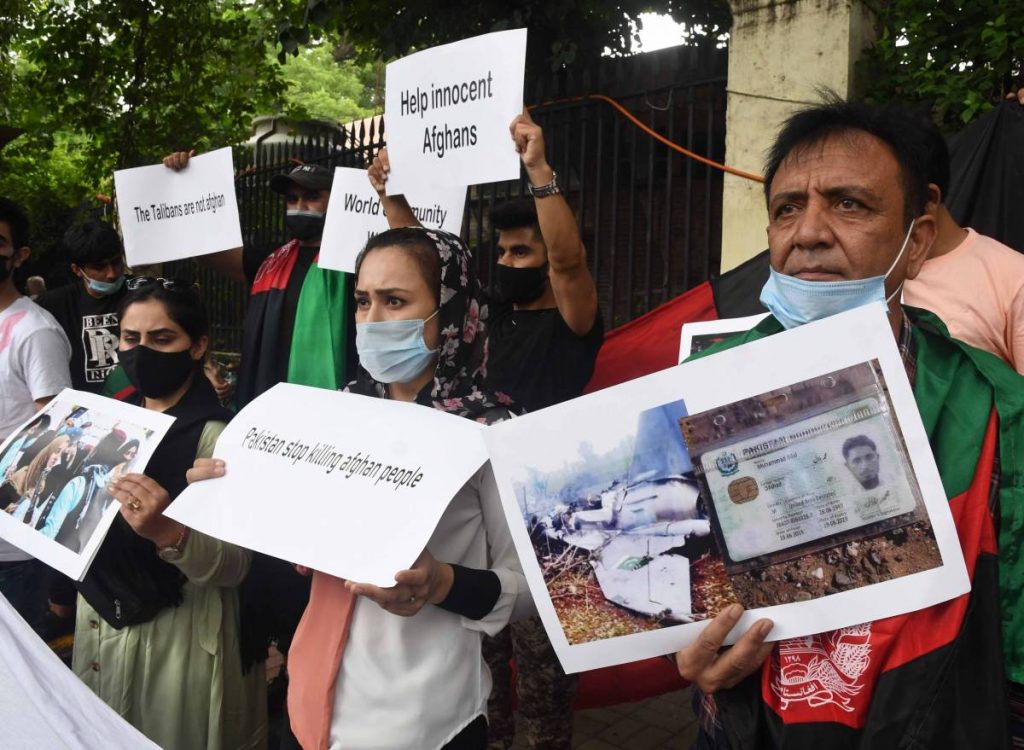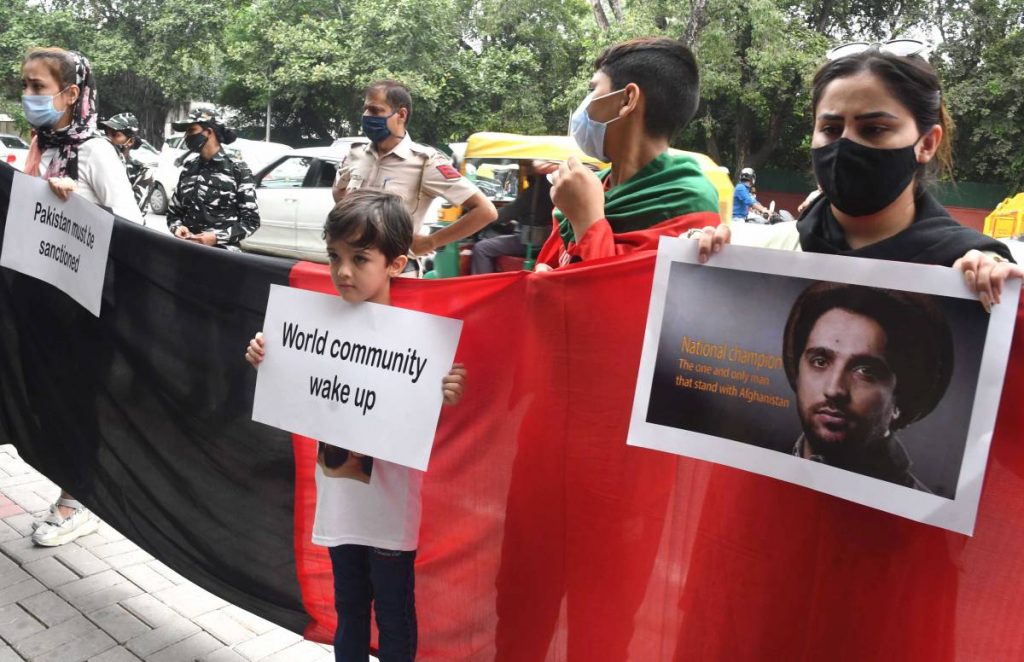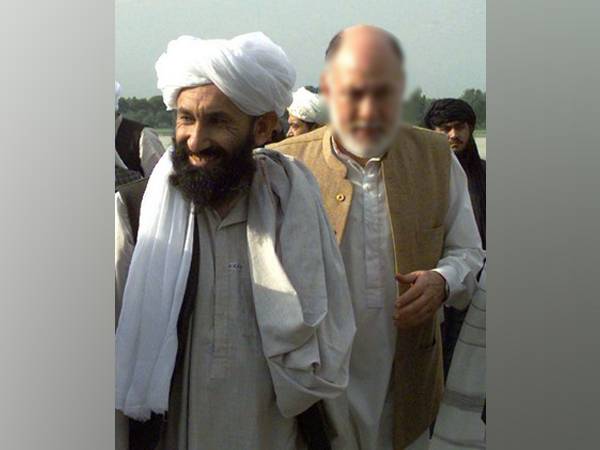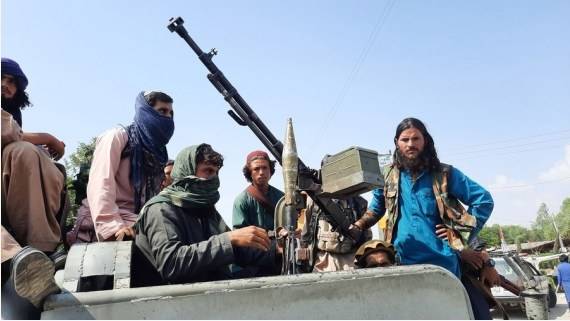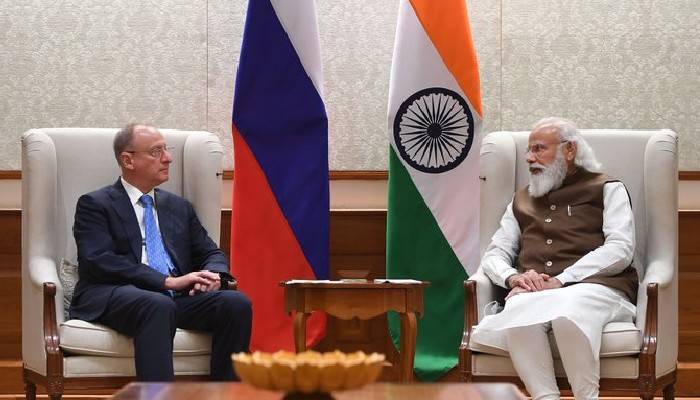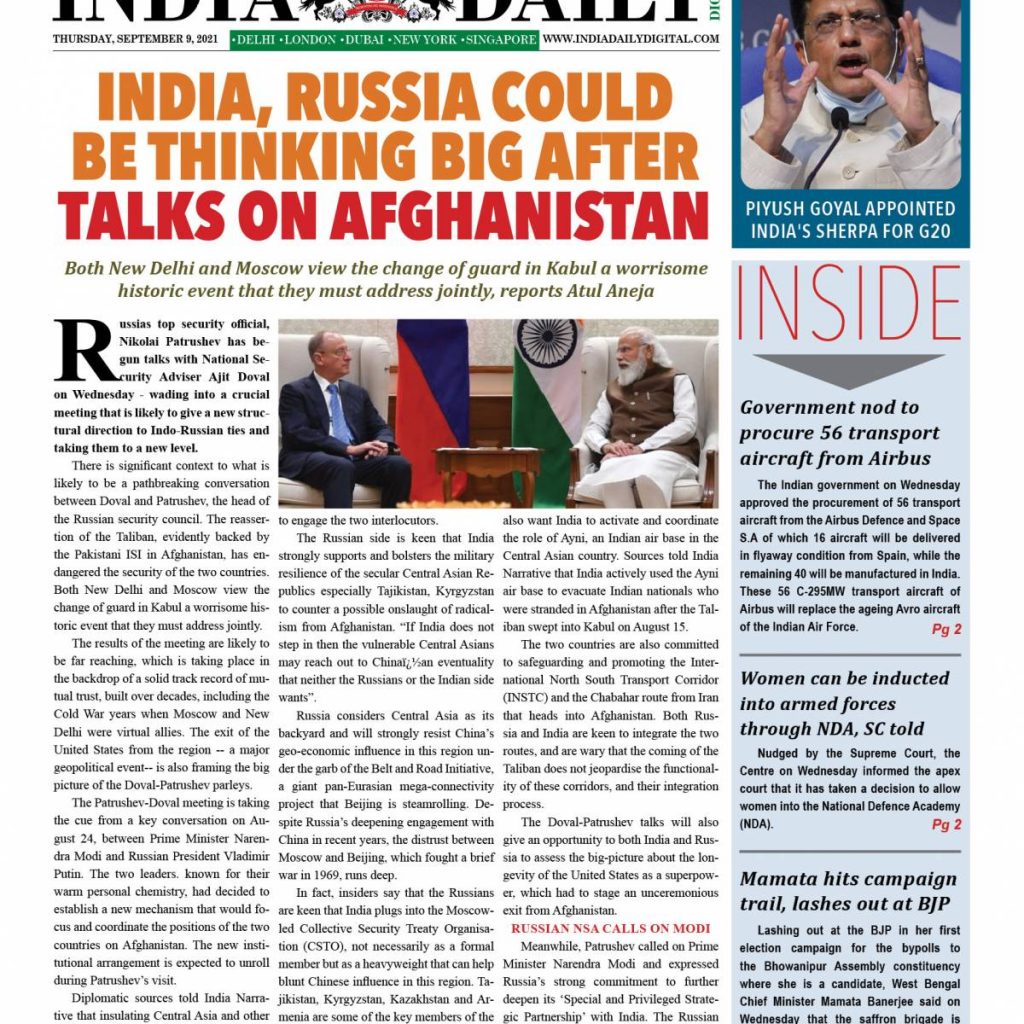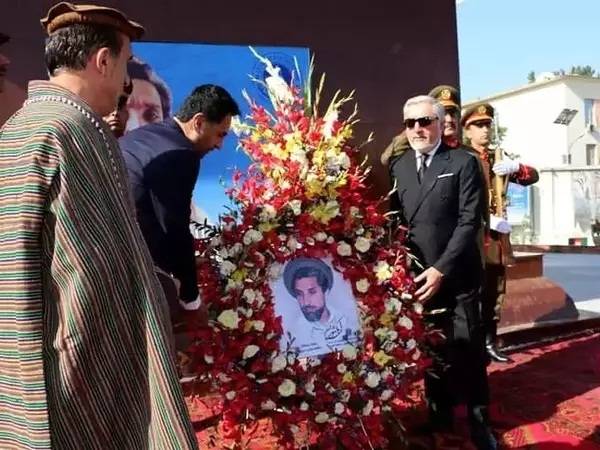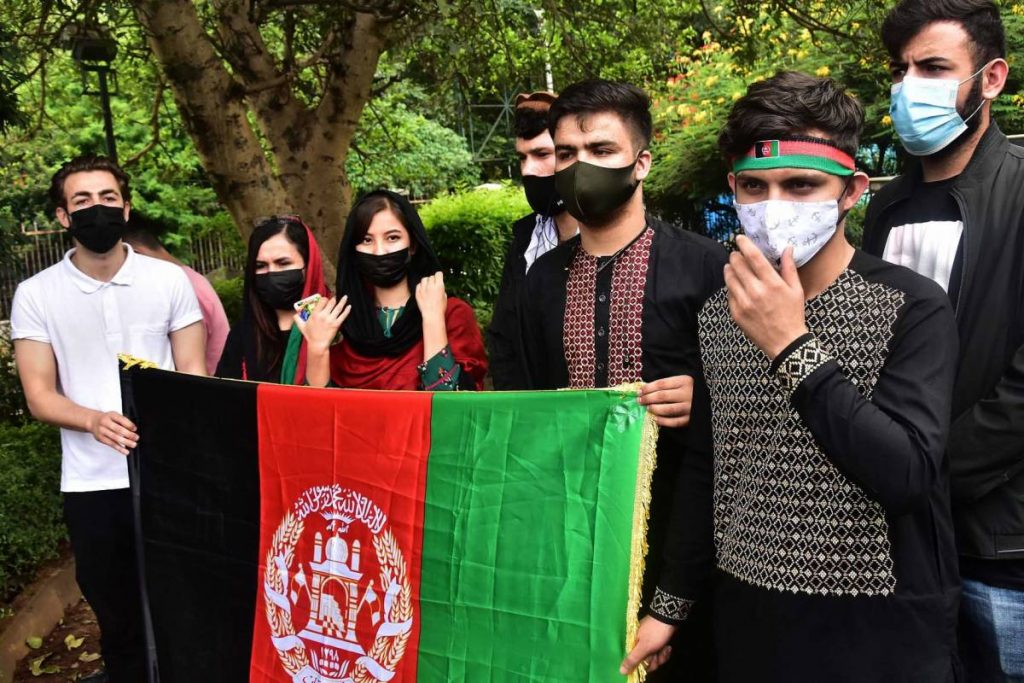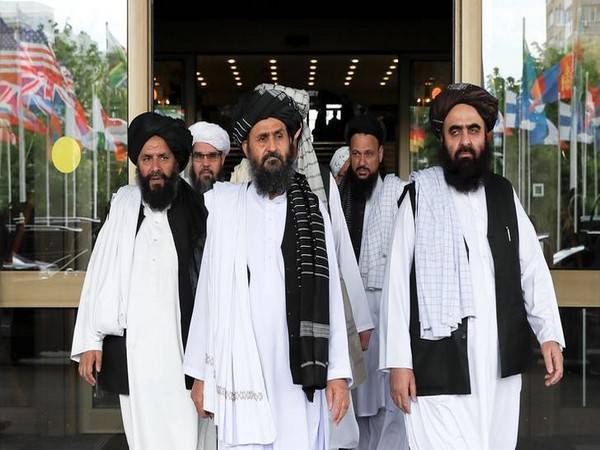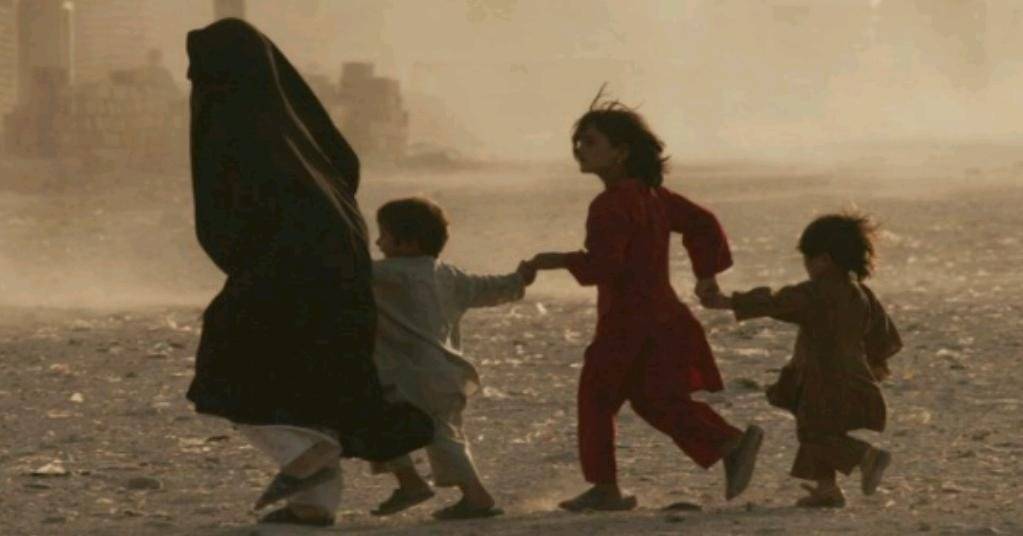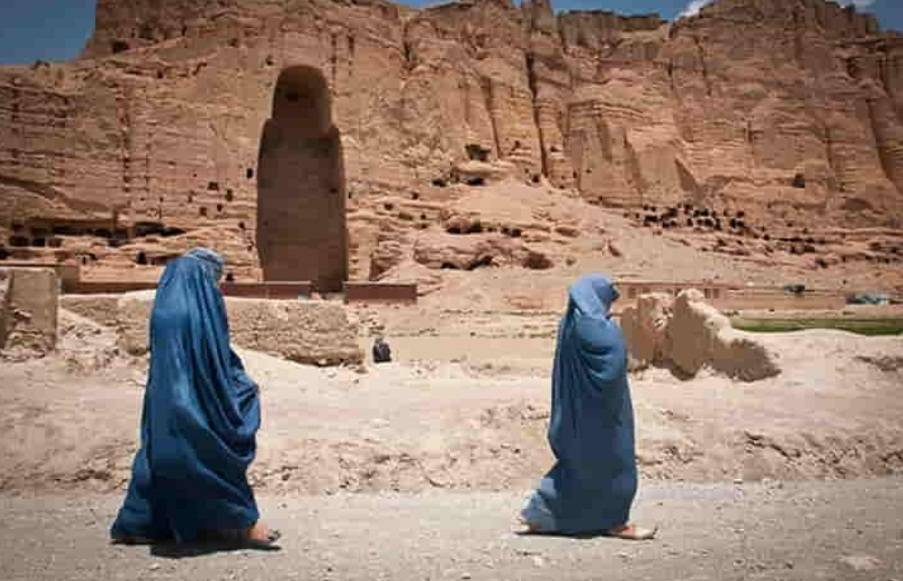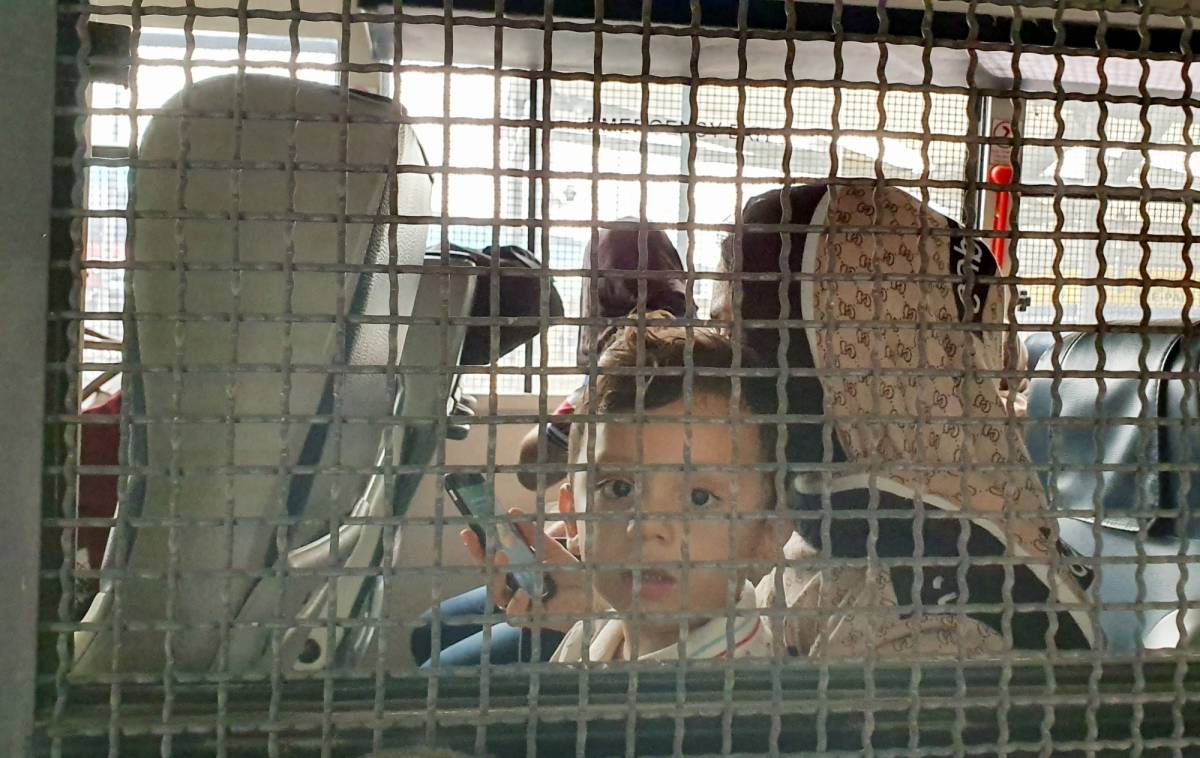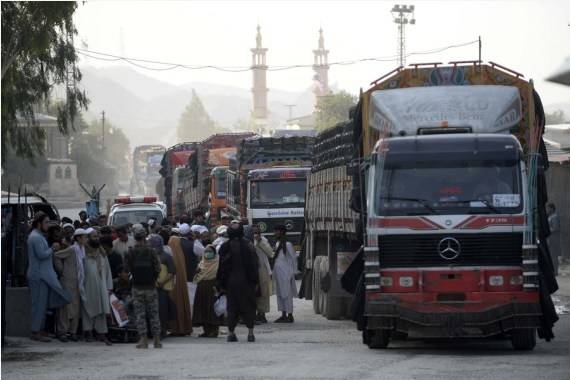The European Foundation for South Asian Studies (EFSAS) organised a well-attended and vibrant Webinar, titled “Afghanistan and the region post – Taliban takeover” … reports Asian Lite News
A group of international experts, politicians, scholars and policy analysts expressed their views on the situation in Afghanistan and the region of South Asia following the Taliban takeover of Afghanistan.
The event was moderated by Mr. Junaid Qureshi, Director EFSAS, and was joined by a large number of attendees, including think tank-representatives, NGO members, scholars and researchers.
During her presentation, Ms. Nargis Nehan, Former Minister of Afghanistan on Mines, Petroleum & Industry, and Founder of the NGO ‘Equality for Peace and Democracy’, argued that the Taliban cabinet, announced recently by the group, failed to represent both gender and ethnic diversity of Afghanistan. The Taliban, she contended further, did not represent a popular mass movement but had capitalized on endemic corruption in the country, the relative weakness of the Afghan security forces and the absence of a unified national leadership.

The Taliban’s victory was said to be enabled by the 2020 Doha Agreement, which allowed the Taliban to ultimately ignore the pursuit of a more multipolar peace process. That said, Ms. Nehan argued that the military situation deteriorated more rapidly than commonly anticipated and has now reached a stage where the Taliban’s victory is treated as a fait accompli by the international community, which has adopted a tactic of “wait and watch”.
The Taliban’s social policy and ideological orientation, Ms. Nehan argued, did not diverge significantly from that of the first Taliban regime in power between 1996 and 2001. Yet, the governance difficulties faced by a Taliban administration now differ as Afghan people have shown civic awareness and have moved to resist the Taliban, e.g., through public protests. As the Afghan society has changed significantly since the Taliban first lost control over the country in 2001, the new Taliban administration is likely to face various governance issues. Without advocating for a Taliban regime, Ms. Nehan argued that new governmental designs and policies should focus on ensuring social cohesion and social peace.
The international community, it was argued, should engage with the Taliban on a conditional basis that ties aid provisions to governance performance. In this context, communication channels should be established on a multilateral-collective level rather than a unilateral-national level. Lastly, Ms. Nehan argued that humanitarian assistance to the Panjshir Valley, which is under attack by the Taliban, must be delivered as swiftly and as efficiently as possible.
Dr. Dorothée Vandamme, Centre for the Study of Crises and International Conflicts, EFSAS Research Fellow & Research Fellow at Genesys Network, primarily focused her presentation on the role of the Pakistani military establishment in the modern trajectory of Afghanistan. Following the partition of British India in 1947, Dr. Vandamme argued, the Pakistani military establishment has focused on ensuring strategic equality with India and preventing an encirclement along its eastern and western flanks. Historically, the military establishment has thus benefited from upholding threat perception as high threat perceptions validate and legitimize the existence and dictating role of the Pakistani army internally in Pakistan as well as externally. The reproduction of alleged national security threats herewith provides the military establishment with a power base.

In regard to the Pakistani Inter-Service Intelligence (ISI), described by Dr. Vandamme as having an almost ‘mythical’ reputation, she argued that the ISI has long adopted a strategy that has normalized political violence and affiliation with Islamist groups. The structural support for factions within the Mujahideen, the concerted support for the Taliban and groups such as the Haqqani Network are cases in point as the ISI continues with providing funds, recruits, training, organizational coordination, direct military support and a safe haven.
Despite close historical ties between the Taliban and the ISI, Dr. Vandamme argued, relations between both groups are not necessarily straight forward. The ISI’s influence over Taliban policy was described as fluid over time, especially as the Taliban has sought to establish strategic autonomy. The Taliban victory in Afghanistan may also create internal issues for Pakistan in the long run by compounding Pashtun irredentism and might also embolden Islamists in Pakistan. Moreover, a renewed civil war in Afghanistan, for example between the Taliban and organizations such as ISKP, could also have spill over effects for Pakistan.
Dr. Vandamme ended on the idea that the Taliban victory was a short-term success for Pakistan that may have negative long-term implications for the country. Amidst the weaknesses of the Pakistani civilian government, the support for Islamist groups and inherent anti-India attitudes were concluded to be the cornerstones of the strategic culture of the Pakistani military establishment.
Mr. Timothy Foxley – Political/Military Analyst, Former Senior Analyst for the British Ministry of Defense, the Swedish Ministry of Defense and SIPRI, and currently an EFSAS Research Fellow, began his speech by stating that the international community needs to be cautious of the present developments in Afghanistan.

Narrating the history of the conflict, he argued that not much has changed from 20 years ago. However, Mr. Foxley opined that the current Taliban government is a minority force that have a monopoly on violence and seem to enjoy very little popular support, especially given the fact that its recently formed cabinet does not represent the political and ethnic diversity within the country, this making the group not the ‘liberators’ as it likes to portray itself. Almost in an allegorical way, the ongoing fighting in the Panjshir Valley is as of now a rallying point for resistance, manifesting the mistakes of the Taliban which might be able to occupy it but will not be able to control it, with local groups using guerrilla tactics.
Mr. Foxley, further deliberated upon the fact that the Taliban is trying to juggle different interests – on one hand trying to keep people in the country, and on the other trying to make things look as much as business as usual. Yet, as he set forth, the Taliban needs to unlock international funds and humanitarian aid, alongside with delivering governance, protecting human rights, and working on counterterrorism.
On the lines of expectations, all of the above is highly unlikely to achieve. On the questions of how the Taliban will be able to respond to public protests and criticism, especially over time, Mr. Foxley said that the Taliban is likely to struggle with containing those opposition groups. While its victory may inspire other groups elsewhere, including in Jammu & Kashmir, the Middle East and Africa, the Taliban due to its very nationalist agenda confined to Afghanistan would initially not want to be seen as a safe haven for other terrorist groups. Although their links with Al-Qaeda might seem to prevail in certain cases, when it comes to the Islamic State of Khorasan Province (ISKP), the Taliban has openly expressed animosity, given that ISKP, despite recent losses, still remains capable and would want to attack the Taliban in order to expose and exploit its weaknesses. Mr. Foxley concluded his speech by remarking that there is a high probability for several civil conflicts across the country, as well as a violent opposition on behalf of the ISKP or local warlords.
Dr. Weeda Mehran, Lecturer at the University of Exeter, specialising on warlordism, conflict and peacebuilding in Afghanistan, explained how the Taliban has been seen as a violent State actor that no longer enjoys the support of the Afghan community. Thus, if wanting to remain in power, The Taliban has to mediate between providing governance services and using violence to consolidate control, otherwise it will face uprisings.
Dr. Mehran illuminated how the narrative of tolerance that the Taliban attempts to provide is not reflected in practical behavior, and that this is particularly visible from its newly formed cabinet, which is extremely exclusive and thus devoid of any ethnic minorities or women. As a result, segregation is likely to become the norm and female rights to remain imperiled. In addition, while all the major services such as healthcare, education, economy and banking have completely collapsed, she argued that instead of investing in the well-educated skilled human capital of the Afghan society by further imposing restrictions, the Taliban has put its own ‘Mullahs’ in charge of these institutions, while they completely lack expertise or knowledge on these subjects and thereby are bound to endanger the socio-economic future of the country.
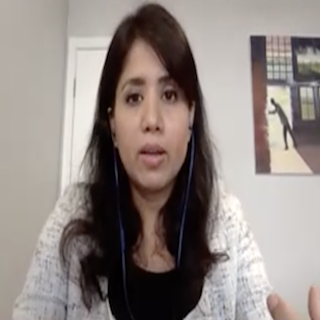
Dr. Merhan opined that ultimately what becomes visible is how the Taliban struggles with its own logic, thus becoming contradictory. For instance, the current government consists of black-listed individuals, hence putting the international community in a very difficult position in terms of recognizing a government with its officials listed on various terrorist sanction lists. If the Taliban would be interested in seeking legitimacy, then that is something it should have considered.
Moreover, she positively mentioned that owing to social media, the voices of resistance are difficult to be silenced by the Taliban, which is an occurrence it was not prepared for. Having said that, if control is consolidated more, Taliban might manage to contain people’s access to communication technologies. Dr. Merhan concluded her speech arguing that despite various window-dressing statements, Taliban’s promise for not turning Afghanistan into a safe haven for terrorists is far from the truth, given that many Al-Qaeda, Tehrik-e-Taliban Pakistan and Islamic State fighters find refuge on its territory. In addition to that, she reminded the panel not to disregard the fact that Haqqani Network members were also given important positions in the newly formed government.
Following the presentation, during the Q&A session, several different points of discussion were raised. When asked about the dire humanitarian situation and the conditions that should be placed on emergency aid, Ms. Nehan advocated for an engagement with the Taliban without an actual recognition of the Taliban as the government of Afghanistan.
Given the restrictive policies for NGO’s imposed by the Taliban, she stated that the provision of basic services that Afghan people have started to expect from the government should continue and be channeled through NGO’s. With regard to another question about the design of humanitarian aid programs, Ms. Nehan emphasized that the design should always be focused on social peace and aim to build cohesion on the political, social and community level which will respond to needs on the ground. Given the situation in Afghanistan, she called for an immediate intervention to stop the current fighting and called upon the international community to step in and for the Taliban to allow emergency support and an open communication lines to Panjshir.
It was further mentioned by Ms. Nehan that the presence of the ISI chief in Kabul was met with disaffirmation by the Afghan people. When asked about the way of engagement that should be pursued towards the Taliban, Ms. Nehan argued that a combination of engagement and confrontation might prove as the most effective approach. While there should be support for the resistant groups, the international community should pursue constructive, consistent and united engagement and clear communication with the Taliban.
Regarding the funding of the Taliban and the extent to which narcotics might prove as a possible source of funding for the Taliban, Dr. Mehran stated that international funding is required as source of income and that without international aid, there will be significant negative impacts for the general population. She argued that while the Taliban might turn to the illicit economy for funding, also a turn towards other regional actors like China, Pakistan, Russia or Iran would be possible.
Mr. Foxley stressed that the Taliban works under the assumption that the international community will continue the support for the Afghan healthcare sector and that otherwise, China or Pakistan might offer different contact points for funding.
A question about the possible interaction between the Taliban and China’s Belt and Road Initiative (BRI) was answered by Dr. Vandamme, who argued that China is merely waiting for Afghanistan to be stable so that possible deals like the BRI can be established. She highlighted that this might present a major funding opportunity for the Taliban and that China is not interested in the human rights situation in Afghanistan but waiting to exploit the potential of the country.
Another question was raised about whether the West should push back against the narrative established by Pakistan in the recent weeks that the Taliban government should be accepted. Dr. Vandamme stated that Pakistan has always pushed that narrative and not only recently. She said that the country has been waiting to be the negotiator and that the lack of long-term policies of the international community vis-á-vis Pakistan leads to a situation in which Pakistan as a nuclear State gains leverage. Remarks of Dr. Mehran have thereby highlighted the potential spill-over effects and the risks of encouragement for other terrorist actors in the region based on the narrative of Taliban’s tangible success.
The final question raised in the webinar concerned the role of India following the part played by Pakistan in the rise of Taliban in Afghanistan. Dr. Mehran argued that India remains cautious regarding any promises given by the Taliban and that military resistance could form up against the Taliban if other terrorist organizations gain strength in Afghanistan and would become a threat to India’s interests. This was underlined by Mr. Foxley who stated that India could play a crucial role in the anti-Taliban resistance and Dr. Vandamme who pointed out that India needs to be focused on gathering intelligence in order to protect its own strategic interests especially with regard to the terrorist threats looming.

Experts Discuss The Impact of Taliban Takeover 
Experts Discuss The Impact of Taliban Takeover 
Experts Discuss The Impact of Taliban Takeover 
Experts Discuss The Impact of Taliban Takeover 
Experts Discuss The Impact of Taliban Takeover

